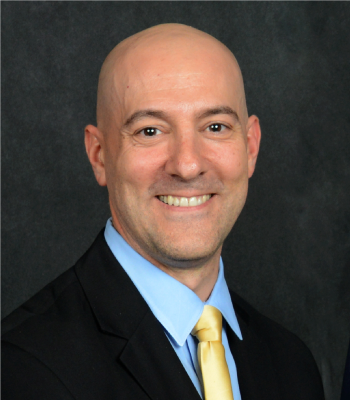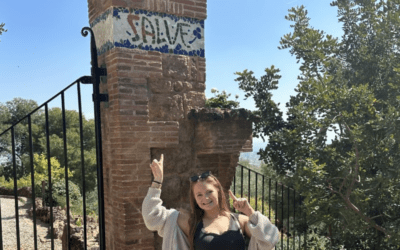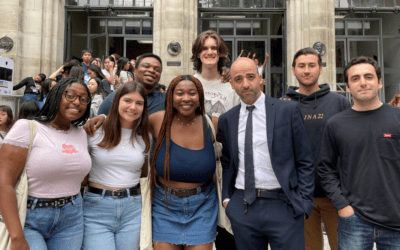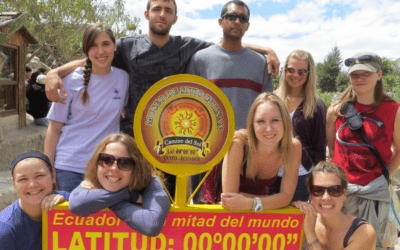Global Kitchen Series Brings Globe to CSI
CSI’s Ferst Shares Via’s “Why”: Global Experiences Will Change the World
Stephen Ferst, EdD, has been active in NAFSA for years, including chairing the Education Abroad Knowledge Community and the 2013 Annual Conference Committee. But he’s also known by some in the Education Abroad community for the restaurant recommendations he makes in advance of every NAFSA Annual Conference & Expo.
“Anybody who knows me knows that I spend an inordinate amount of time planning out where I’m going to eat when I travel—so much so that I might actually plan where I’m going to travel based on where I’m going to eat,” says Ferst, executive director of the Center for Global Engagement at CUNY Staten Island. “There’s no easier way to get into a culture than to just try their food.”

Teaching people about other cultures through food is what prompted Ferst to create the Global Kitchen Lecture Series, which he started at another university and then brought to the College of Staten Island (CSI) in 2014.
The goal of the series, he says, is to “bring the globe to the campus.”
“This is a way to bring a global perspective to students who may never participate in a study abroad program or travel outside of New York State,” Ferst explains. “They’re going to work in a global environment, so let’s bring that cultural understanding to them.”
The 60-minute sessions include an academic-style lecture by a CSI CUNY faculty member or guest, who explains the dish, produce, herbs, or spices and shares their story and impact. A cooking demonstration follows and, when in person, a tasting of the epicurean delights.
Ferst led the first one at CSI CUNY, which was on traditional spices and the impact they’ve had around the world.
“There was a point at which pepper was more valuable than gold,” Ferst explains. “We’ve had wars over spices.”
He concluded his lecture with foods made with different spices. “We had people tasting spices. We had racks and racks of different spices,” he recalls.
Since then, the Global Kitchen Lecture Series has covered topics like candy and chocolate, herbs, Nigerian coconut rice, Mexican salsa, and dumplings. The series, which always has an academic angle, has been taught by political scientists and historians, nutritionists and biologists, and even by celebrity chefs.
“We’ve not had any problem finding people to give the lectures,” Ferst says.
While most of the attendees are students, the series also attracts community members. He estimates 150 to 200 people attend each session.
“We have packed houses,” Ferst says. “I don’t know if it’s because they want to get fed. I don’t know if they just like the topic. It just really resonates with students. They’re so engaged they’re asking questions well past the end of the lecture time. So we do get some real genuine academic action.”
He gives credit for the success of the program to CSI CUNY’s Winnie Brophy, who runs the lecture series. “She’s the vision in it,” he says. Ferst and others on campus help brainstorm ideas.
“I want to help students learn about the world,” Ferst says. “Why does that matter? To quote Gracie Lou Freebush in (the movie) Miss Congeniality, ‘world peace.’ But that’s it, right? There is a deep belief that I hold that if you understand somebody better, you are less likely to take up arms against them. That’s at the core of what I try to do in international education.”
The Global Kitchen Lecture Series is held each semester at CSI CUNY. The pandemic hasn’t stopped the series, which has been held over Zoom. Participants were invited to cook at home, right along with the lecturer.
The series also offers a way for students to learn about study abroad and all the other great things CSI’s Center for Global Engagement does, Ferst adds. They make sure to have literature available and to field questions from attendees at each event.
“I do think it’s achieving our goal in bringing a little slice of the world to people and helping them to understand another culture. It’s important to me to fully educate our students so that they understand their community and the world and how they fit in it.”
The number of CSI CUNY students who study abroad is less than 10 percent, but even for the students who choose to do so, it’s not the norm, Ferst says.
“They work hard to do it,” he says. “They may have come into college without even thinking about it. If they do think about studying abroad, their immediate follow-up thought is, ‘That’s not for me’ or ‘I could never do that.’ This type of programming, we hope, brings them one step closer to saying, ‘Maybe I can do that.’”
Let’s Connect
Via TRM believes global experiences will change our world. That’s why we created traveler relationship management and travel risk management software, which helps universities and study abroad program providers to empower global experiences. With this blog, we’re looking to feature people who, like Stephen Ferst, share Via’s “why.” If that’s you or one of your colleagues, tell us more. We might just feature you here!




